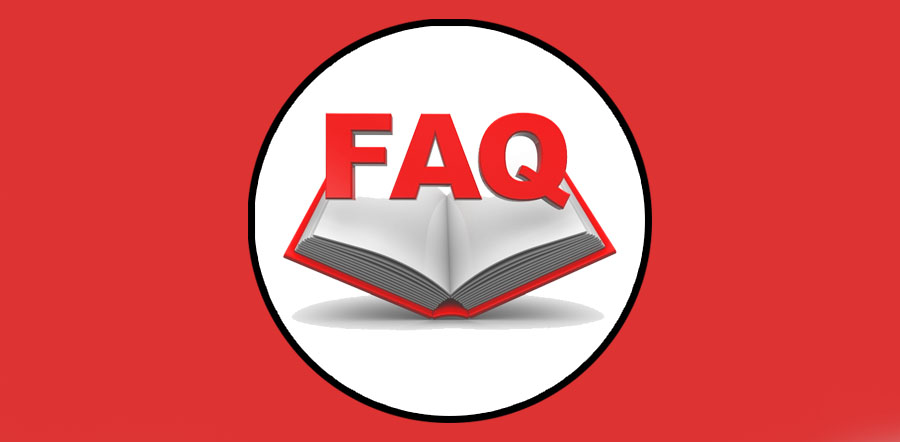SOFA-CFE
Guaranteed Success in SOFA-CFE Exam
“The SOFA-CFE practice test is something that You’re looking for a very long time is here !”
Pass your SOFE SOFA-CFE Exam with the Latest QuizDumps SOFA-CFE PDF Questions and Answers. QuizDumps provides [Authentic , Updated and Real] SOFA-CFE Braindumps that are prepared and verified by IT experts. If you want to get high marks then start your preparation now with QuizDumps Study Material.
1: Download Q&A PDF
You can easily download the SOFA-CFE Questions Answers PDF file for the preparation of Certified Financial Examiner Exam and it is especially designed for SOFE SOFA-CFE exam and QuizDumps prepared a list of questions that would be asked in the real SOFA-CFE exam.
2: Prepare Questions Answers
Use QuizDumps's SOFA-CFE exam dumps PDF and prepare Certified Financial Examiner Exam SOFA-CFE Questions Answers with 100% confidently. We offer 100% real, updated and verified exam questions and answers tested and prepared by experts to pass SOFE SOFA-CFE exam.
3: Pass Your Exam
After your preparation for Certified Financial Examiner Exam SOFA-CFE exam by using QuizDumps's exam material kit you will be ready to attempt all the SOFA-CFE questions confidently which will make 100% guaranteed your success in the first attempt with really good grades.
-
LEED-AP-ND
LEED Certifications
Updated: 2024-11-19 100 Questions -
PCCSE
Prisma Certified Cloud Security Engineer
Updated: 2023-02-06 260 Questions -
300-735
CCNP Security
Updated: 2020-11-18 60 Questions -
APM-001
Associate in Project Management
Updated: 2019-12-17 704 Questions -
PGCES-02
PostgreSQL Certified Engineer
Updated: 2017-12-14 142 Questions -
2V0-72.22
VMware Certified Professional
Updated: 2022-03-14 79 Questions -
CPEH-001
GAQM Certified Ethical Hacker
Updated: 2021-11-11 877 Questions -
DEX-450
Platform Developer I
Updated: 2023-02-10 200 Questions
Main points of SOFE SOFA-CFE Test
The SOFE (Software Engineering Fundamentals) SOFA-CFE (Software Foundations and Architectures - Certified Functional Engineer) exam focuses on a broad range of software engineering principles and practices, with a strong emphasis on functional programming and software architecture. There isn't a publicly available, detailed syllabus like some other certifications, but based on common industry practice and the implied scope of the name, the main points likely include:
I. Foundational Software Engineering Concepts:
- Software Development Lifecycle (SDLC): Understanding different methodologies (Agile, Waterfall, etc.), their strengths and weaknesses, and how to apply them appropriately.
- Requirements Engineering: Gathering, analyzing, and documenting software requirements.
- Software Design Principles: SOLID principles, design patterns (creational, structural, behavioral), and architectural styles (e.g., layered, microservices).
- Testing: Various testing methodologies (unit, integration, system, acceptance), test-driven development (TDD), and testing frameworks.
- Version Control: Using Git or similar systems for collaborative software development.
- Software Quality Assurance (SQA): Processes and techniques to ensure software quality.
- Software Metrics: Measuring and analyzing software development processes and products.
II. Functional Programming Principles:
- Pure Functions: Understanding the concept of pure functions, their benefits (testability, predictability), and how to write them.
- Immutability: The importance of immutable data structures and their role in functional programming.
- Higher-Order Functions: Using functions as arguments and return values.
- Recursion: Solving problems recursively.
- Functional Data Structures: Working with lists, maps, and other functional data structures.
- Common Functional Programming Paradigms: Familiarity with concepts like map, filter, reduce, and monads (potentially depending on the exam's depth).
- Functional Programming Languages (likely emphasis): The exam likely tests knowledge of at least one functional programming language like Haskell, Clojure, Scala, F#, or even advanced features of languages like Python or JavaScript that support functional programming styles.
III. Software Architecture and Design:
- Architectural styles & patterns: Microservices, event-driven architectures, layered architectures, etc., and when to apply them.
- Design Patterns: Common design patterns applicable to building robust and maintainable software.
- API Design and RESTful services: Understanding REST principles and designing well-documented APIs.
- Concurrency and Parallelism: Designing concurrent and parallel systems, handling threading and synchronization issues.
- Deployment and Infrastructure: Understanding basic concepts of deployment (cloud, on-premise), containerization (Docker, Kubernetes), and infrastructure as code.
IV. Specific to "Certified Functional Engineer":
The "Certified Functional Engineer" part strongly suggests a heavier emphasis on:
- Applying functional programming principles to solve real-world problems: The exam would likely present scenarios requiring you to design and implement solutions using functional programming techniques.
- Building functional software architectures: Designing systems that leverage the benefits of functional programming, such as scalability, maintainability, and testability.
It's important to note this is an inference based on the title and common software engineering practices. To know the exact content, you would need to consult official documentation (if available) provided by the organization offering the SOFE SOFA-CFE exam. Look for study guides, sample questions, or a detailed syllabus from the exam provider.
Comments

